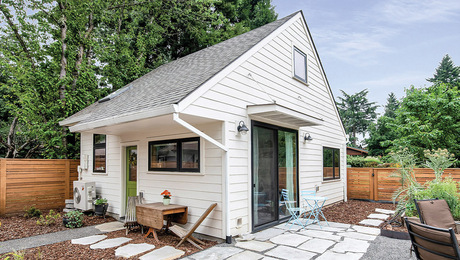*
Laticrete Latapoxy, SP-100, available at Lowes. Works great on horizontal surfaces. You can do about a 10-15 sq foot section per bucket. You can’t do large areas at one sitting because you have to go back and scrub about 1 hour after initial application; repeat the scrubbing 24 hours later. Each bucket costs about $18-20. Special order colors come in cases (4 buckets) and can take up to 3 weeks.
Rather lousy on vertical surfaces, you have to add a stiffener and then it doesn’t float very well. I ended up packing the stuff between the tiles using a putty knife – but the results were great.
The tiles I used had a slightly porous surface. The epoxy filled the surface and changed the tile colors. This would not have been a problem with conventional grouts.
I missed some spots during initial cleanup. Knocking off the epoxy grout also removed the tile surface (sigh). Otoh, grinding the grout away works nicely though its a bit harder than the conventional stuff.
My total cost was over $300, compared to about $40-60 for conventional latex-modified grouts.



















Replies
*
Laticrete Latapoxy, SP-100, available at Lowes. Works great on horizontal surfaces. You can do about a 10-15 sq foot section per bucket. You can't do large areas at one sitting because you have to go back and scrub about 1 hour after initial application; repeat the scrubbing 24 hours later. Each bucket costs about $18-20. Special order colors come in cases (4 buckets) and can take up to 3 weeks.
Rather lousy on vertical surfaces, you have to add a stiffener and then it doesn't float very well. I ended up packing the stuff between the tiles using a putty knife - but the results were great.
The tiles I used had a slightly porous surface. The epoxy filled the surface and changed the tile colors. This would not have been a problem with conventional grouts.
I missed some spots during initial cleanup. Knocking off the epoxy grout also removed the tile surface (sigh). Otoh, grinding the grout away works nicely though its a bit harder than the conventional stuff.
My total cost was over $300, compared to about $40-60 for conventional latex-modified grouts.
*
Frank - Thanks for the info. I'm going to try a section of countertop that has 3/16" wide joints and will cut back the existing sanded grout 1/16" or more. The tile is a smooth porcelain so removal of stray remnants of epoxy shouldn't damage it absorption shouldn't be a problem. I hope the epoxy will bond well to the remaining sanded grout as I don't like the idea of completely removing the old grout.
The material cost sounds high but probably worth it if it gives an attractive appearance.
*
The latapoxy I used would be great for a kitchen counter. It's "stain resistant", water proof, harder than normal grout, doesn't need sealing or periodic maintenance. I am pretty pleased with the effect even though it was a lot more work.
I didn't have any problem with the epoxy grout on smooth glazed tiles; it cleans right up at the 1-hour washing. 24 hours later it's ready for duty.
I used a rotozip with tile cutter bits for cleaning up the grout lines between the tiles. Works great, the bits are 1/8 in. On harder tiles it the bits don't mar them, on softer tiles (such as wall) you'd need more care.
*
I am interested in using epoxy tile grout in countertop & shower floor applications. I would appreciate infomation on appropriate techniques for installation and source of supply. Conventional grout, sanded or unsanded, acrylic modified or not, seems to be inadequate for these applications with respect to longevity and ease of cleaning. Thanks for any information you can offer.